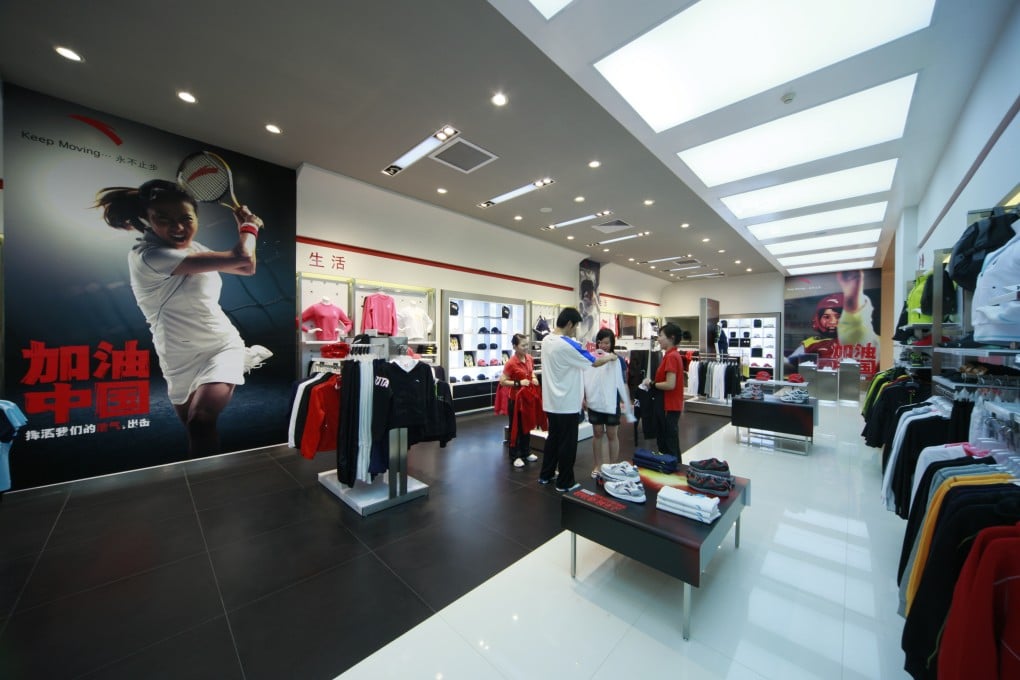Portfolio | Anta sprints ahead in China’s sportswear market rebound

Will China’s sportswear companies learn from the mistake of over-expanding their business in the run-up to the 2008 Beijing Olympics as they chase another Olympics in 2022?
Before the 2008 Olympics, major homegrown sportswear brands rushed to go public and expand their footprint to ride the tide, which eventually led to oversupply and waves of store closures. According to a recent research report by HSBC, more than 7,000 shops have been closed since 2011, when their numbers peaked.
“We expect the companies to pay more attention to upgrades of select store locations and overall store efficiency but not significant store openings. Growth won’t be as fast as it was before the 2008 Beijing Olympics, but we think it will be at a healthier and more sustainable rate because of greater demand,” the report said.
China’s Anta sets sights on closing gap with global sports brand leaders
Sales recovery of local brands kicked off last year after three years of store adjustments and inventory control, which Anta has managed well. Among domestic sports brands, Anta is the favourite pick of industry analysts for its multi-brand strategy and acquisition potential that may boost its earnings growth.
Locking in the biggest market share among domestic peers – 9 per cent – Anta responded to the market downturn by cutting low-performing stores in past years.
Back in 2009, when the company acquired Fila’s loss-making China business from Belle International, the industry doubted if Anta would be able to turn it around. Today, Fila’s apparel sale has become a key profit contributor to Anta. A war chest of 5.6 billion yuan in net cash also means Anta has the wherewithal to pull off a similar acquisition of another China operation of an international sports brand.
“Anta has accumulated solid experience and a strong track record from operating Fila in China. Its in-house production flexibility and strong management should allow it take up more brands,” wrote analysts from Deutsche Bank in a note.

